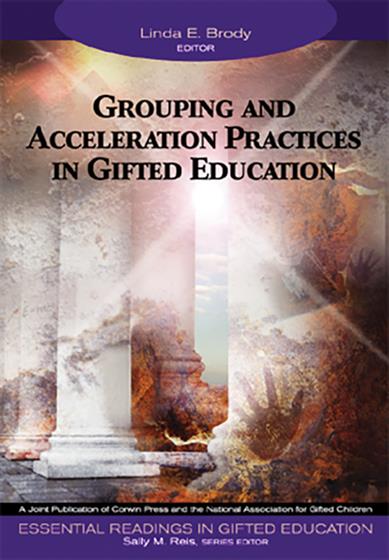
Hands-on, Practical Guidance for Educators
From math,
literacy, equity, multilingual learners, and SEL, to assessment, school counseling,
and education leadership, our books are research-based and authored by experts
on topics most relevant to what educators are facing today.
Grouping and Acceleration Practices in Gifted Education
The expert guide to grouping and acceleration practices for gifted and talented students!
The most influential works on acceleration and grouping practices for the gifted are gathered in this volume, which covers concerns about the effectiveness of such techniques, presents research on the optimal conditions and methods for the utilization of grouping and/or acceleration, and describes effective programmatic initiatives.
Key features include:
- A detailed accounting of the history of acceleration and grouping practices and their effectiveness by field leader Linda E. Brody
- Examples of successful grouping and acceleration practices specifically designed to meet the needs of gifted students
- Numerous suggestions for putting the research findings to use
- Grade Level: PreK-12
- ISBN: 9781412904292
- Published By: Corwin
- Series: Essential Readings in Gifted Education Series
- Year: 2004
- Page Count: 208
- Publication date: March 25, 2014
Price: $39.95
For Instructors
When you select 'request review copy', you will be redirected to Sage Publishing (our parent site) to process your request.



